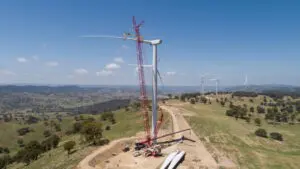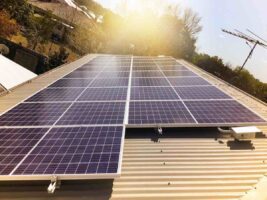The thin veneer covering the Coalition government’s Direct Action policy is being rapidly stripped away, as even one of Australia’s biggest industry groups warned it would create a massive hole in the federal budget.
The Australian Industry Group said even if Australia matched the low target of the US it would be facing a bill of $19 billion if it continued with Direct Action until 2025. It could face a bill of as much as $25 billion.
The Ai Group intervention came as the federal government continued to defend its controversial funding of climate contrarian, Bjorn Lomborg.
Environment minister Greg Hunt, appearing on the TV show hosted by right wing commentator and climate denier Andrew Bolt, said Lomborg was a world renowned economist.
In fact, he is a political scientist, who has become notorious for suggesting, firstly, that climate change was not happening, then was happening but not man made, and when he did accept the science argued that the world should not be in any hurry to act on it.
This appears to be Australia’s official policy now. The first auction by the Emissions Reduction Fund contracted 47 million tonnes of abatement at an average cost of $13.95 a tonne of CO2 equivalent.
That is too high a price for Australia to meet its target of just a 5 per cent cut in emissions by 2020. Nearly half of the emissions bought will not be delivered until after 2020. And some of the abatement bought will disappear anyway. In effect, the government is buying an accounting entry, not long-term abatement.
The Ai Group submission to the government task-force looking at its Paris climate targets said Australia faced massive costs if, as the Coalition has suggested, it continues with the Direct Action policy into the future.
This table here illustrates the various scenarios that Australia may need to follow.
 And this table illustrates the costs that would be associated with it.
And this table illustrates the costs that would be associated with it.
Importantly, Ai Group also warned that the cost to the budget – while significant and more than necessary – could pale compared to the economic cost to Australia of actions that other countries might take.
It said if these were “ambitious and realised “ they will tend to reduce prices and volumes of Australian exports, such as thermal coal, although they could lift prices and volumes of other commodities such as natural gas.
The Climate Institute takes up a similar argument. It criticises the government paper for including no discussion as to how a 2°C global warming target to be met. Instead, as we noted here, the only scenario it entertains is a world that warms by 4°C.
“Australia currently lacks a strategy to manage the risks and capitalise on the opportunities of global action to reduce emissions,” the TCI wrote.
“Major trading partners from Asia, North America and Europe are implementing measures to price carbon, limit emissions, improve energy productivity, and grow renewable energy supply.
“In this context, the government risks taking a partial and short-sighted view of national prosperity by basing it primarily on the foundation of our large fossil fuel resources, emissions intensive exports, and high proportion of coal-fired electricity generation.
“While these characteristics have contributed to national prosperity in the past, their future contribution is far from assured. A focus on these parts of the current economy to the exclusion of others prevents a full assessment of the opportunities and costs of moving to a net zero emissions world.
“Australia’s position among high income countries as a relatively large emitter in per capita and emission intensity terms is a liability that needs to be addressed, not ignored.”
Yet, this is exactly what the likes of Lomborg promote. Hunt, meanwhile, defended Lomborg, who Bolt pointed out had argued that the Kyoto Protocol, for instance, would be useless because it would only delay climate impacts by a few years at a cost of $150 billion a year.
Hunt said: “Well, Lomborg is actually an economist of international renown and this isn’t a global warming think-tank as the left portray it. It’s actually an economic analysis unit and think-tank.”
Lomborg told the Australian the same thing. But his move to WA coincides with new investigations in the US which purport to show that around two-thirds of the funds donated to his centre from 2008-13 were used to pay Lomborg, his travel and promotion of his book.









